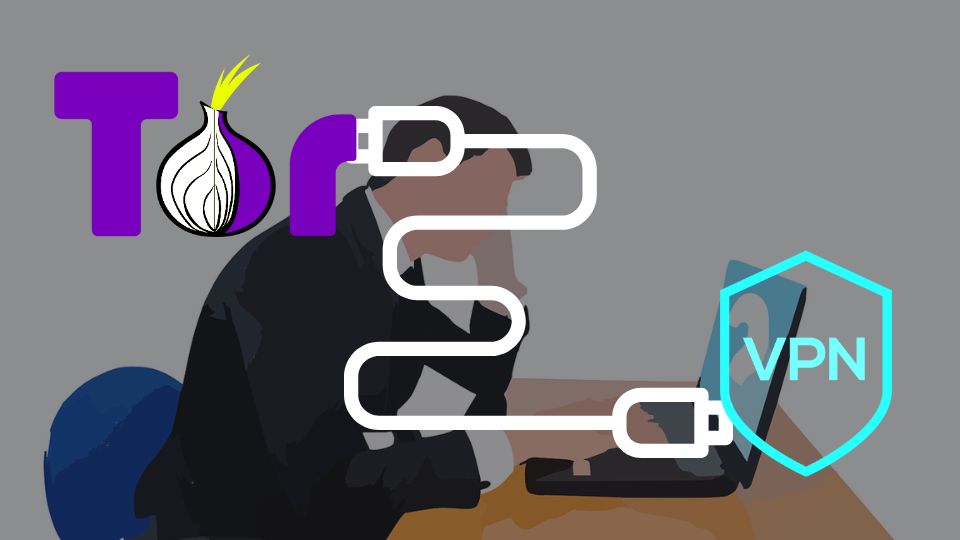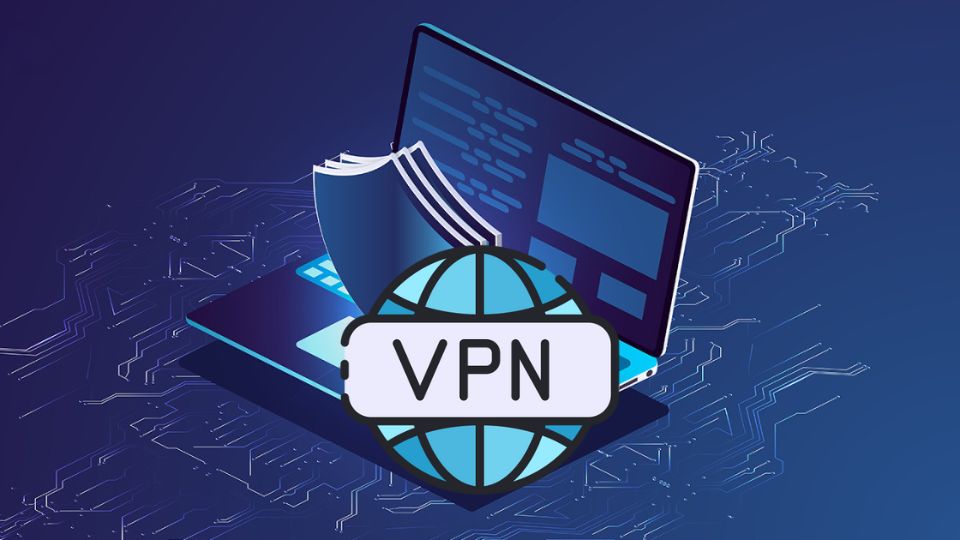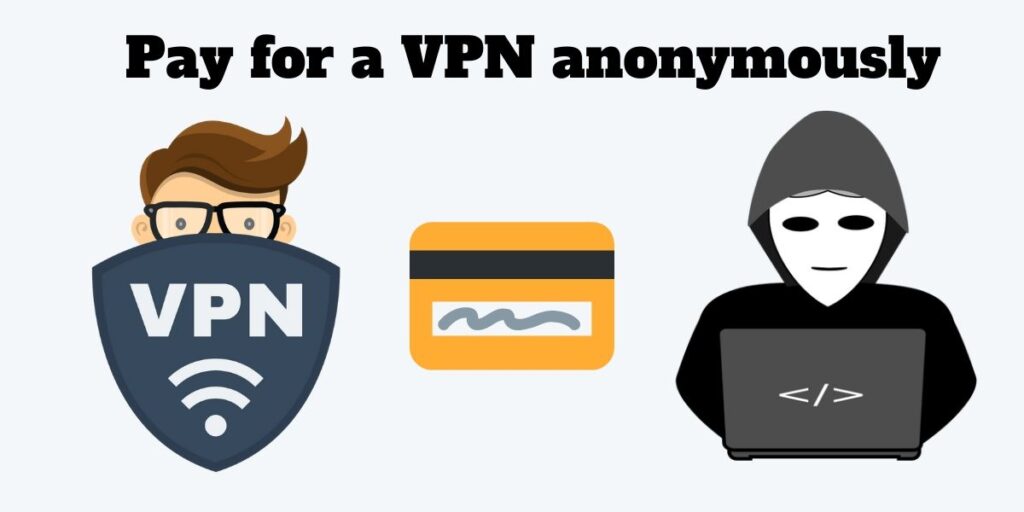This post may contain affiliate links. As an affiliate, we earn from qualifying purchases. We get commissions for purchases made through links in this post.
Tor network provides the best way to stay anonymous on the Internet for absolutely free. If you are a Tor user, you are already accessing the Internet in disguised mode. Having said that, Tor alone is not always enough for cybersecurity.
Another reliable technology that can boost your online protection is a VPN. However, a VPN alone is also not 100% secure.
It makes sense for the following question to arise – what if we could combine both Tor and VPN? Will this allow us to boost our online protection?
Staying safe online is not an easy task, and often, the hybrid approach is the best solution. So, should you consider using a VPN with Tor and vice-versa?
Will you stay more secure when using a VPN over Tor? Or should you connect to a VPN first and then run a Tor browser?
In this article, I am going to try and make it clear when and how Tor should be used with a VPN. Also, I will recommend some VPN services that work best with Tor.
What’s the difference between VPN and Tor?
Let’s start by making it clear what Tor and VPN are and what are their core distinctions.
While some of us might mix up these similar but very different technologies, you might already have formed a clear understanding of what they are. If this is the case – feel free to skip this part.
Even though I’ve mentioned Tor and VPN are completely different, there are a few similar characteristics.
The first step in understanding the differences is to learn what each technology is and what it offers.
What a Tor is?
The Tor Project and Tor browser are the technology that allows anyone to hide their online identity and location. Tor was created and is being maintained by a non-profit organization for the sake of helping Internet users to disguise their identity online. This comes in handy for journalists, security service officials, human rights activists, etc.
Tor is an open-source project. It has a community of developers that support and improve its protection every day.
The community is genuinely interested in Tor staying a secure and reliable network. Each time a security breach is detected (if ever), it gets fixed in no time thanks to a large group of enthusiasts.
![]()
![]()
How does Tor work?
The Onion Router (Tor) is powered by a large network of nodes sprinkled around the world. Each node is a computer or a server machine configured to work as a part of the Tor network.
As soon as you route your Internet traffic through a Tor network, all your data will be flowing via a chain of randomly selected Tor nodes. There are always 3 or more nodes that relay your traffic to the global network and back.
When you attempt to access any website via the Tor Browser, your traffic first heads to the “entering node”. From that node, it then flows to one more node, and then to at least one additional node. The last node is called the “exiting node” since the traffic leaves the Tor network through it and makes its way to the remote host of your choice (a website that you’re trying to visit). All your traffic is encrypted while it’s inside the Tor network.
You may be wondering where does the Tor network get those nodes?
Tor nodes are simply computers that have Tor software installed on them. Anyone that wishes to become a part of the Tor network can do so by installing the required software on any computer. In fact, a major part of the Tor network consists of volunteers from around the world.
How safe Tor is?
When using the Tor network your real IP address is always hidden from the destination website.
Your traffic is entering the Tor network through the first (entering) node and exiting through the last(exiting) node.
Only the IP address of the “exiting node” is visible to a destination site.
All your traffic is encrypted while it is inside the Tor network. Most of the time it is impossible for Tor node owners to decrypt your data. However, beware of so-called rogue nodes that may try to steal your data.
How to start using Tor?
It is very easy to begin using Tor. All you need to do is install a Tor browser, and visit all the websites from within it. You’re going to stay in a disguised mode as long as you are accessing the web via the Tor Browser.
Pros and Cons of Tor
Every technology for privacy protection has its advantages and drawbacks. Let’s see how things are going with Tor.
Pros
- Tor is completely free and open-source. It is quick to install and use
- Anyone (including me and you) can become a Tor node voluntarily
- Tor is extremely safe
- It is geographically distributed and provides strong anonymity
- Any OS and mobile device can use Tor (there are apps for 3 major OSs and mobile apps as well)
Cons
- Data transfer is slow
- Visiting non-HTTPS websites may result in your data leak to one of the Tor node owners (rogue nodes)
- YouTube is disabled by default, as well as other streaming video websites
- ISP may still see that you are connected to a Tor network (this may be a problem in some countries)
- Only the Tor browser’s connection is anonymized, while the rest of the apps still transfer the data openly
What a VPN is?
VPN stands for Virtual Private Network. It was originally designed for use in the corporate world.
Large and medium businesses rely on this technology for security reasons. Corporate IT departments usually set up one or more VPN servers to make sure all the employees only work inside the encrypted VPN tunnel.
VPN is even more important for companies that have several branches in different cities or countries. All the employees must only use the Internet via this network. System administrators are then responsible for keeping this network clean of malware and secure against hackers.
Remote workers are often required to use a VPN when working with critical business data. This is especially important for the staff of financial businesses.
Besides commercial use, VPN is very popular among home users. People are using VPN connections to access geo-restricted content, protect their data when using online banking and shopping, as well as for the sake of staying anonymous.
![]()
![]()
How does VPN work?
It is really easy to understand how it operates.
When you launch a VPN client application on your computer, it is going to establish a secure connection to a VPN server. From there on, all your incoming and outgoing traffic will get encrypted and is going to get transferred through a secure tunnel.
The VPN server decrypts all the data that’s coming from your VPN client and sends it over to the Internet. Likewise, all the encrypted data that’s coming back from the VPN server to your VPN client will get decrypted as soon as it reaches your machine.
Whenever you access any website while being connected to a VPN, your real IP will get hidden. The remote host will only see the IP address of your VPN server.
In contrast to a Tor network, VPN makes all your computer’s traffic anonymous. Not just a web browser, but all other apps will route all the data through a VPN.
VPN does not limit you from watching videos. Any streaming service is usually completely available. Having that said, not all VPNs provide full access to geo-restricted content (see recommendations at the end).
How safe VPN is?
Virtual Private Network is a very mature technology. It was invented in 1996 and is still widely used. Nowadays it’s been improved to provide even more safety by introducing a bunch of modern encrypted protocols.
You can even set up a VPN server on your home network, and use it when you need secure access to your home LAN remotely.
When compared to Tor, VPN may seem like it is less secure. The thing is, your protection may vary depending on the VPN provider you are using.
VPN service is currently offered by hundreds of providers. Some of them even offer free plans.
However, not all VPN providers are equally safe.
When choosing the most secure VPN service, you must pay close attention to what security layers are included, and make sure modern encryption technologies are available. I will put some of the most trusted VPN providers at the end of this post.
How to start using a VPN?
It is fairly easy for anyone to connect to a VPN.
If you just want to try it first, you can start by using free VPN access via the Opera browser. However, this will only allow you to use it inside this browser.
In case you want to route all your traffic via a VPN – consider installing a specialized desktop app, and using it to connect to a VPN server.
If you are unsure what VPN provider to choose, feel free to check our list of best ones and see if one of them is going to fit your needs and budget.
Pros and Cons of using a VPN
VPN is not a perfect technology. Let’s see what are the main positive and negative sides it has.
Pros
- VPN is usually much faster than Tor (when using a decent provider)
- All your traffic will get routed through a secured tunnel
- VPN is an established and well-designed technology
- You can choose to use one of the hundreds of VPN providers
- Some VPN providers offer free services
Cons
- The VPN company of your choice may be conducting data steal activities
- Some VPN providers will reveal your identity to police or other government officials upon request
- You have to install a VPN software
- A lot of VPN servers are blocked in specific countries
- Premium VPN will cost quite a lot of money
Comparing a VPN versus Tor
Now as we know the advantages and drawbacks of both VPN and Tor, we can compare them side-by-side.


VPN
- Faster speed (when using paid providers)
- Strong encryption is guaranteed by the VPN provider (in case of using a trusted company)
- Paid service in most cases
- Mature technology
- The real IP address is hidden behind the VPN server’s address
- A VPN client is required to connect to it
- All network traffic is routed over the VPN
- Videos can be played as usual
- Most VPN providers are huge commercial organizations
- ISP can see that you are connected to a VPN but the traffic is encrypted
Tor
- Slow speed because its free and distributed over home user PCs
- Data is encrypted and is routed through several nodes (but, node owners may attempt to steal your data)
- Completely free
- Relatively new technology
- The real IP address is hidden behind multiple nodes
- Easy to use with the Tor browser
- Only the traffic within the Tor browser is protected
- Videos are disabled by default
- Tor is an open-source technology and network
- ISP will know that you are using Tor
I’ve marked the winning points of Tor and VPN with green text.
Red text means that this point is a weakness compared to its counterpart.
Orange color means that both Tor and VPN offer reasonable competition between two.
Obviously, both Tor and VPN are secure and relatively easy to use. Tor is faster to set up but it provides slower download and upload speeds.
VPN works better when you want to watch streaming video, download heavy torrents, or play games. Tor offers stronger anonymity.
Now let’s get to our main topic, and figure out if we actually need to use a VPN together with Tor and vice-versa.
Should you use a VPN if you’re using Tor?
As long as you are concerned about your privacy and want to stay anonymous when visiting certain websites, using Tor is an essential layer of protection.
It’s not only hiding your identity behind multiple Tor nodes but it also makes your communication more secure by encrypting your incoming and outgoing traffic.
Tor works best when you don’t want to spend money on premium VPN providers. When you need a strong but free tool for anonymous web surfing – Tor is the first thing you should start using.


Problems
Having said that, Tor is not enough for strong data encryption. When using HTTPS websites – you are getting some encryption already. In fact, you should avoid using non-HTTPs sites at all. However, this is not always possible.
Here comes the security problem with Tor. When using a non-encrypted HTTP connection, your communication may suffer from a data leak. This is due to some of the Tor network nodes are not trustworthy. Tor network suffers from a problem of rogue nodes. These nodes are owned by online eavesdroppers and are used for man-in-the-middle attacks.
Another problem of Tor without a VPN is, some ISPs may throttle or even block the Tor network so it gets harder for you to use the Tor browser. They may be doing it for your safety, but still, you will suffer from a mediocre Tor experience.
One more major issue when using Tor alone is your ISP will most likely know that you are using Tor. In some countries, you may get yourself in trouble for using Tor. Even though you will not necessarily be prosecuted because of using Tor, your ISP may start sending you notices insisting to stop using Tor.
Solution
What can you do about all these problems?
Start using Tor with VPN. When you are connected to a VPN server, all your traffic is encrypted between you and that server. Your ISP may see that you are using a VPN, but your exact activity is completely hidden from them. This is due to all your data traveling through the encrypted VPN tunnel.
It is recommended to use Tor over VPN. This means you connect to a VPN server first, then you use your Tor browser, or a built-in VPN provider’s feature to access the Tor network.
In this case, your traffic will get double-encrypted. The first encryption happens on the VPN side, second will be provided by Tor.
This method effectively blocks Tor rogue nodes from reading your data.
Your ISP will know that you are using a VPN, but they will not know that you are using the Tor network.
Another way of using a VPN with Tor is connecting to a Tor network first, then connecting to a VPN from within it.
However, this method is not recommended, as you are not hiding the fact that you are using Tor. Additionally, if you happen to send your data via rogue Tor nodes, you may accidentally leak your VPN credentials to one of those nodes.
As long as you are connected to a VPN – you can use the Tor network freely, and not be afraid of ISP throttling the Tor speed and blocking access to the Tor network.
If you are wondering which VPNs work best with Tor – we suggest taking a look at NordVPN. It’s got a built-in Onion over VPN feature that allows you to connect to a Tor network from within the VPN client software.
When to use Tor and when to use VPN?
Should you always be using Tor or should you stay connected to a VPN most of the time?
Or, maybe it’s better to always use both tools for whatever task you are doing on the Internet?
Let’s consider a few use cases.


Use Tor for
For example. Let’s say you want to visit a certain website just to read and write text data or browse images. Along with that, you wish to stay completely incognito. Your physical IP address must be hidden. In this case, it is completely fine to rely on the Tor network alone. VPN is hardly needed for this scenario. Having said that, if you want to double or triple encrypt your traffic – use a Tor over VPN. This will mitigate the risks of rogue Tor nodes stealing your data.
Another example is intrusive advertising. Sometimes, after searching for certain terms in Google, you may start seeing related ads on Facebook or Youtube. That’s because Google is using your search queries to make money on advertisers.
If you just want to avoid annoying commercials here and there, using Tor alone is a good solution. By the way, you can as well use the incognito mode in your web browser if all you need is to avoid being spammed with ads. VPN can help as well, but this is not the requirement in this case.
Use VPN if
Let’s say you enjoy watching geo-restricted streaming content like Netflix, HBO GO, BBC, etc.
The Tor network is not going to work well in this case.
The problem is, playing videos is disabled by default when using the Tor browser. Even if you will the extension to enable playing videos, you’re still going to be limited by extremely slow speed. As we’ve already discovered, the Tor network is not designed for speed. A fast VPN provider that allows unblocking geo-restricted videos, is really going to work best in this case.
Another example is using online banking.
While the Tor network allows an awesome level of anonymity, it may bring problems to your security when using it to work with sensitive data.
This includes online banking, shopping, exchanging medical records, and sending critical financial and project reports of your work.
The Tor network sometimes suffers from rogue nodes running along with trusted ones. Beware of data leaks that may cost you a lot of time and money. It’s best to use Tor over VPN for this scenario.
How to use a VPN with Tor?
Now, as you’ve seen some examples of when to use Tor and when to prefer using a VPN, you may have realized that it’s usually best to use both tools.
Unless you are watching streaming content, you’d better use Tor over VPN at all times.
But, how do you do this?


Here is how you can use VPN and Tor simultaneously with the VPN client app and Tor browser:
- Turn on your VPN connection using your VPN client or command-line tool that you’ve fetched from your preferred VPN provider
- Only after your VPN connection has been established you can go ahead and launch the Tor Browser
Here is how the data is going to be transferred between your machine and the website that you’re browsing:
- From now on, all your activity within the Tor Browser will first go through the VPN, and after it is encrypted in your client and sent to a VPN server, it will get decrypted and sent to a Tor entering node
- The Tor entering node will now encrypt your traffic, and send it to your destination web server
- When responding to your request, the web server will send the traffic to the exiting Tor node, and it’s going to travel all the way to the entering Tor node
- Then the traffic will be headed back to a VPN server, and after that, it’s going to come back to your computer via the VPN client software
As you can see, it is fairly easy to use both Tor and VPN together.
Now, are there any even more simple ways for doing this? Of course, there are.
How to use Tor via a VPN without the Tor Browser
If you don’t want to install the Tor browser, but prefer using your favorite Chrome, Firefox, Opera, etc., there is actually a way to avoid the use of the Tor Browser.
Basically, all you need to do is to install a VPN application from the VPN provider that offers a Tor over VPN connection feature. One such VPN provider is NordVPN. You’ll get yourself connected to a VPN server that will in turn get connected to a Tor network. You’ll just have to choose the proper server that supports NordVPN’s Onion-over-VPN technology.
Best VPN providers that work with Tor
If you’re planning to start using a VPN with Tor, you’ll probably start looking for a VPN that works best with Tor.
Frankly speaking, you can use any trusted VPN service with Tor Browser. I’ve covered the ways of using Tor over VPN already in the previous section.
Having said that, I recommend the following VPN providers for the best encryption and anonymous Internet usage with Tor:
- ExpressVPN – British Virgin Islands-based VPN provider that emphasizes the necessity of complete anonymity when using the Internet.
- CyberGhost – This is a Romanian VPN that is protected by the world’s best data privacy laws and is a very mature VPN provider. Would work just fine in combination with a Tor Browser.
- NordVPN – If you do really want to be using the Tor network at all times, your best choice is this Panama-located VPN provider. NordVPN is the first, and, currently, the only provider that comes with built-in Tor network support via its “Onion over VPN” feature. You’ll just need to install the VPN client software and choose a Tor VPN server.



